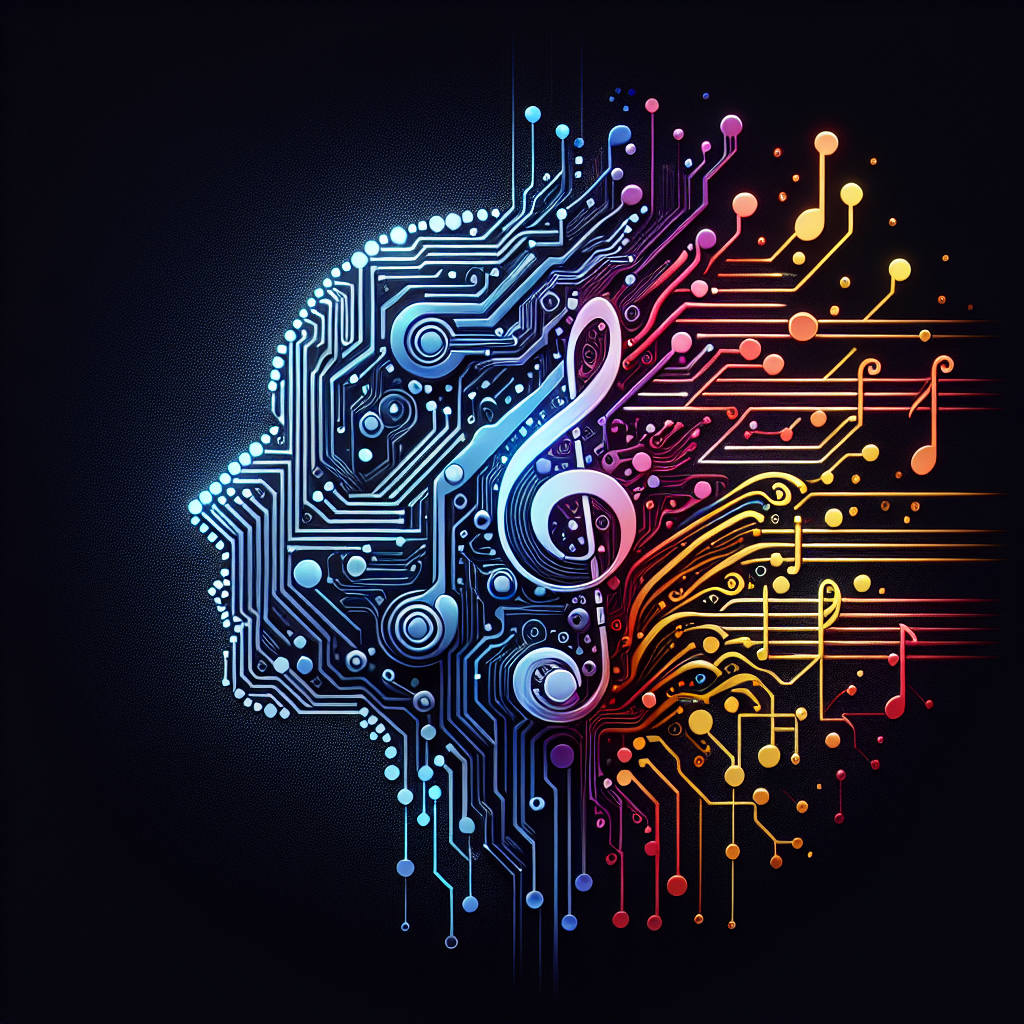Artificial Intelligence (AI) has been making significant strides in various industries, from healthcare to finance to transportation. One area where AI is also making a big impact is in the world of music. AI is revolutionizing the way music is created, produced, and consumed, and is challenging traditional notions of creativity and emotion in music.
The intersection of technology and emotion in music is a fascinating area of study that has been gaining more attention in recent years. Music has always been a powerful medium for conveying emotion, and AI is now being used to enhance and augment the emotional experience of music in new and innovative ways.
One of the most exciting applications of AI in music is in the creation of new music. AI algorithms are being used to compose original music that is indistinguishable from human-created music. These algorithms can analyze vast amounts of musical data, from classical compositions to modern pop songs, and generate new music that is both original and emotionally resonant.
One example of this is the AI-generated album “Hello World” by Taryn Southern, which was entirely composed and produced using AI algorithms. The album received critical acclaim and demonstrated the potential of AI in music composition.
AI is also being used to assist musicians in the creative process. For example, AI algorithms can analyze a musician’s playing style and suggest new melodies or harmonies that complement their style. This can help musicians overcome creative blocks and explore new musical ideas that they may not have considered on their own.
In addition to creating and assisting in the creative process, AI is also being used to personalize the music listening experience. Streaming services like Spotify and Apple Music use AI algorithms to analyze a user’s listening habits and preferences, and recommend new music that they are likely to enjoy. This personalized music recommendation system helps users discover new music that resonates with them emotionally.
Furthermore, AI is also being used to analyze the emotional content of music. Using machine learning algorithms, researchers can analyze the emotional cues in music, such as tempo, key, and rhythm, to understand how music evokes specific emotions in listeners. This research can help musicians and music producers create music that is more emotionally impactful and resonant.
Despite the exciting possibilities of AI in music, there are also concerns and ethical considerations that need to be addressed. One concern is the potential loss of human creativity and expression in music. As AI algorithms become more sophisticated at composing music, there is a fear that human musicians may be replaced by machines, leading to a homogenization of music.
Another concern is the issue of copyright and ownership in AI-generated music. Who owns the rights to music created by AI algorithms? Is it the programmer who created the algorithm, the musician who collaborated with the algorithm, or the AI system itself? These questions raise complex legal and ethical issues that need to be addressed as AI continues to play a larger role in music creation.
Despite these concerns, the intersection of AI and music offers exciting possibilities for the future of music. AI has the potential to democratize music creation, making it more accessible to a wider range of people. It can also enhance the emotional impact of music, creating new and innovative ways for listeners to connect with music on a deeper level.
FAQs
Q: Can AI compose music that is as emotionally resonant as music created by humans?
A: Yes, AI algorithms are becoming increasingly sophisticated at composing music that is emotionally resonant. While there is still debate about whether AI-generated music can evoke the same depth of emotion as human-created music, many AI-generated compositions have been praised for their emotional impact.
Q: How does AI analyze the emotional content of music?
A: AI algorithms analyze the emotional content of music by analyzing various musical features, such as tempo, key, and rhythm. Machine learning algorithms are trained on a dataset of music that is labeled with emotional cues, allowing them to learn how different musical features correlate with specific emotions.
Q: Will AI replace human musicians in the future?
A: While AI has the potential to assist and enhance the creative process for musicians, it is unlikely that AI will completely replace human musicians. Music is a deeply personal and emotional art form, and human musicians bring a unique creativity and expression to their music that is difficult to replicate with AI.
Q: How can AI enhance the music listening experience for users?
A: AI algorithms can enhance the music listening experience for users by personalizing music recommendations based on their listening habits and preferences. This helps users discover new music that resonates with them emotionally and creates a more engaging and immersive music listening experience.

